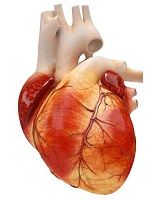Article
Atrial Fibrillation: Ablation Beats Drug
Author(s):
In patients with heart failure and atrial fibrillation, those who had catheter ablation had better results than those who took the anti-arrhythmic medication amiodarone, reported researchers at Albert Einstein College of Medicine in New York City.

In patients with heart failure and atrial fibrillation (AF) those who had catheter ablation had better results than those who took the anti-arrhythmic amiodarone, (Cordarone/Pfizer) researchers at Albert Einstein College of Medicine in New York City found.
In a study presented March 16 at the American College of Cardiology meeting in San Diego, CA, Luigi Di Biase, MD, PhD, and colleagues said those who had the invasive procedure were less likely to die, be hospitalized or have recurrent AF than patients taking amiodarone.
The team looked at 200 patients treated in 8 hospitals in the US and Europe.
All had heart failure, AF, and either an implantable cardioverter defibrillator or cardiac resynchronization therapy with a defibrillator.
In a randomized trial, half the patients had catheter ablation and half had drug therapy.
During a 2-year follow-up, Di Biase said that 31% of patients who had ablation were subsequently hospitalized, while 57% of patients taking amiodarone were hospitalized. Death rates were also higher in those getting the drug therapy (18% died) than in patients who had ablation (8% died).
But it was not quite that simple, he added.
“If the ablation is limited to the pulmonary vein alone, the success rate goes down—almost to the level of the amiodarone treatment,” he said. “The highest success rates were for procedures in which other areas were [also] ablated.”
The experience and expertise of the surgeons performing the ablation is also a factor, he said, and patients treated in high-volume centers where surgeons are good at ablation will obviously do better.
Further, Di Biase noted, amiodarone comes with a risk of serious side effects and “Even when it is effective, amiodarone often needs to be discontinued after a while.”
In conclusion, he wrote in an abstract of the study, “This multicenter randomized study shows that catheter ablation of atrial fibrillation is superior to amiodarone in achieving freedom from atrial fibrillation at long-term follow up and reducing hospitalization and mortality in patients with heart failure and persistent atrial fibrillation.”





